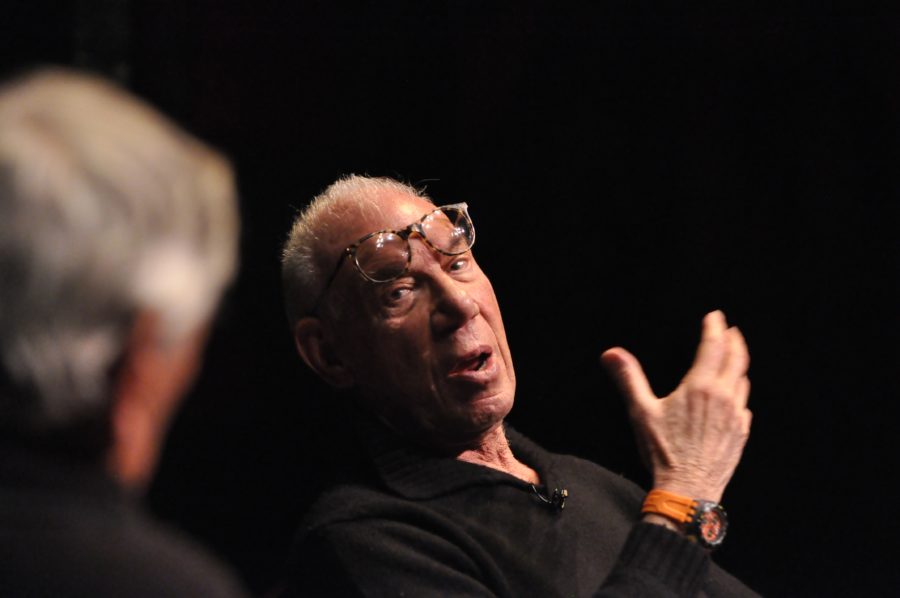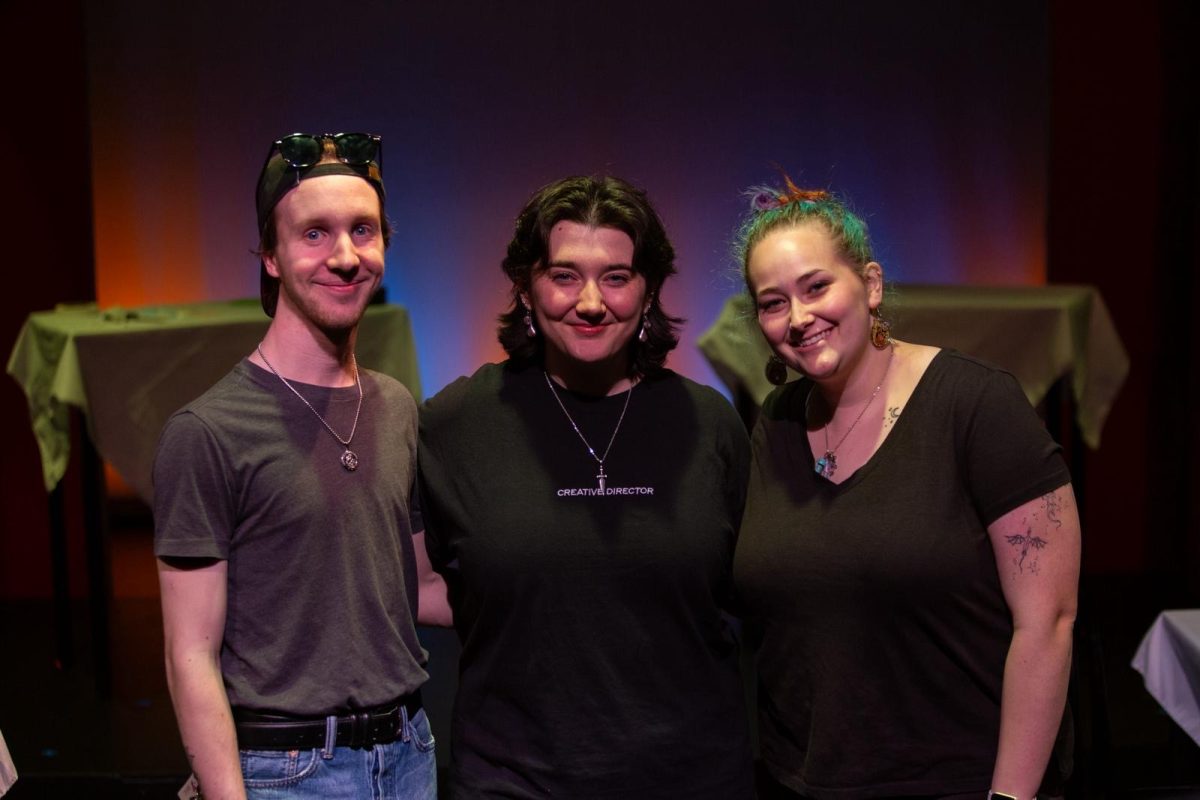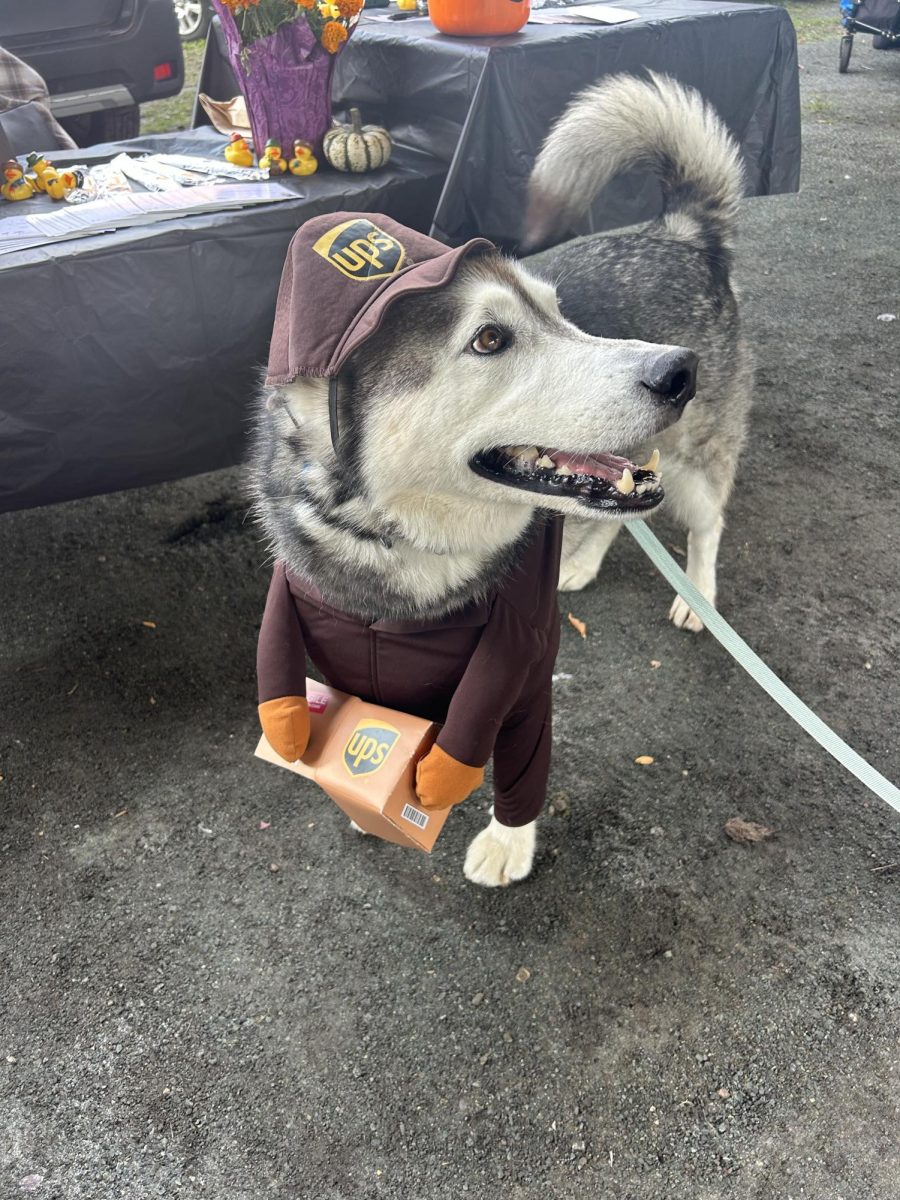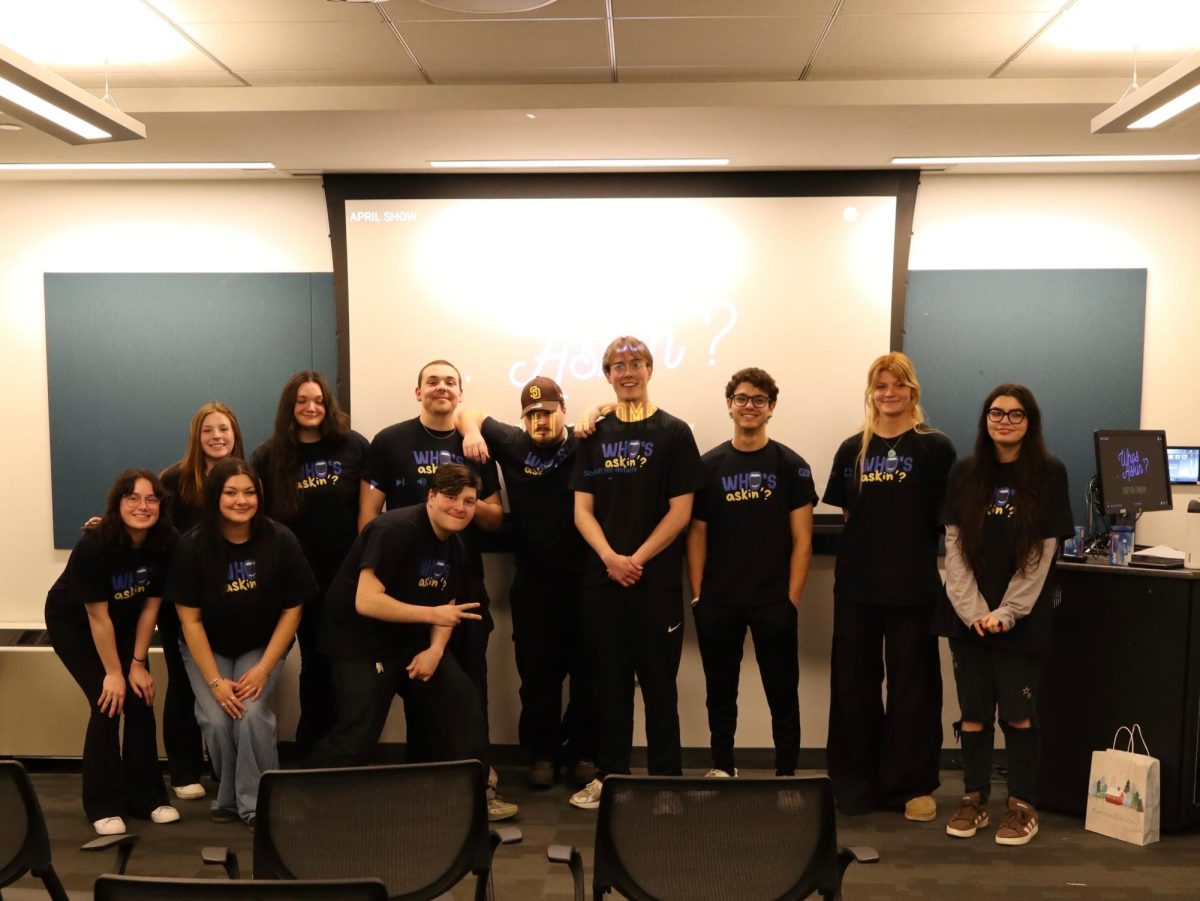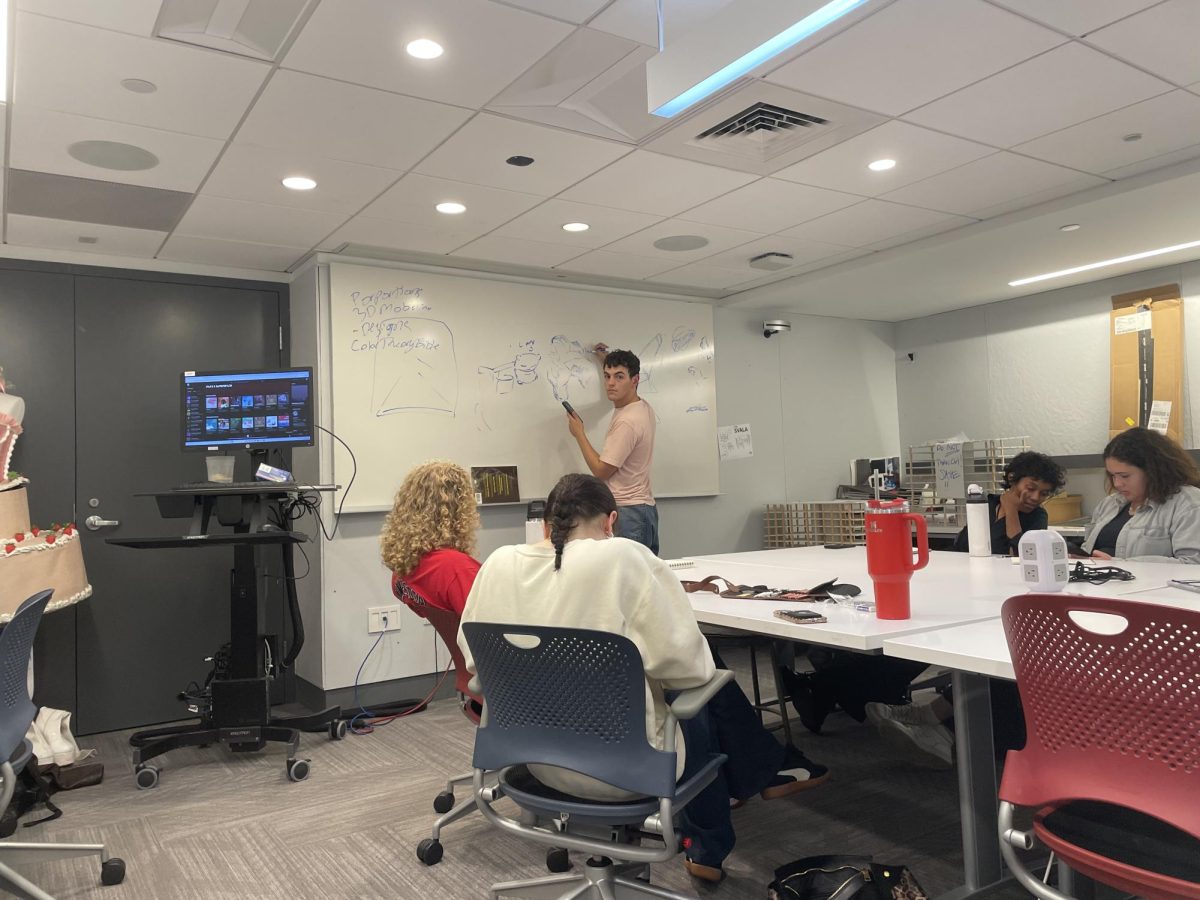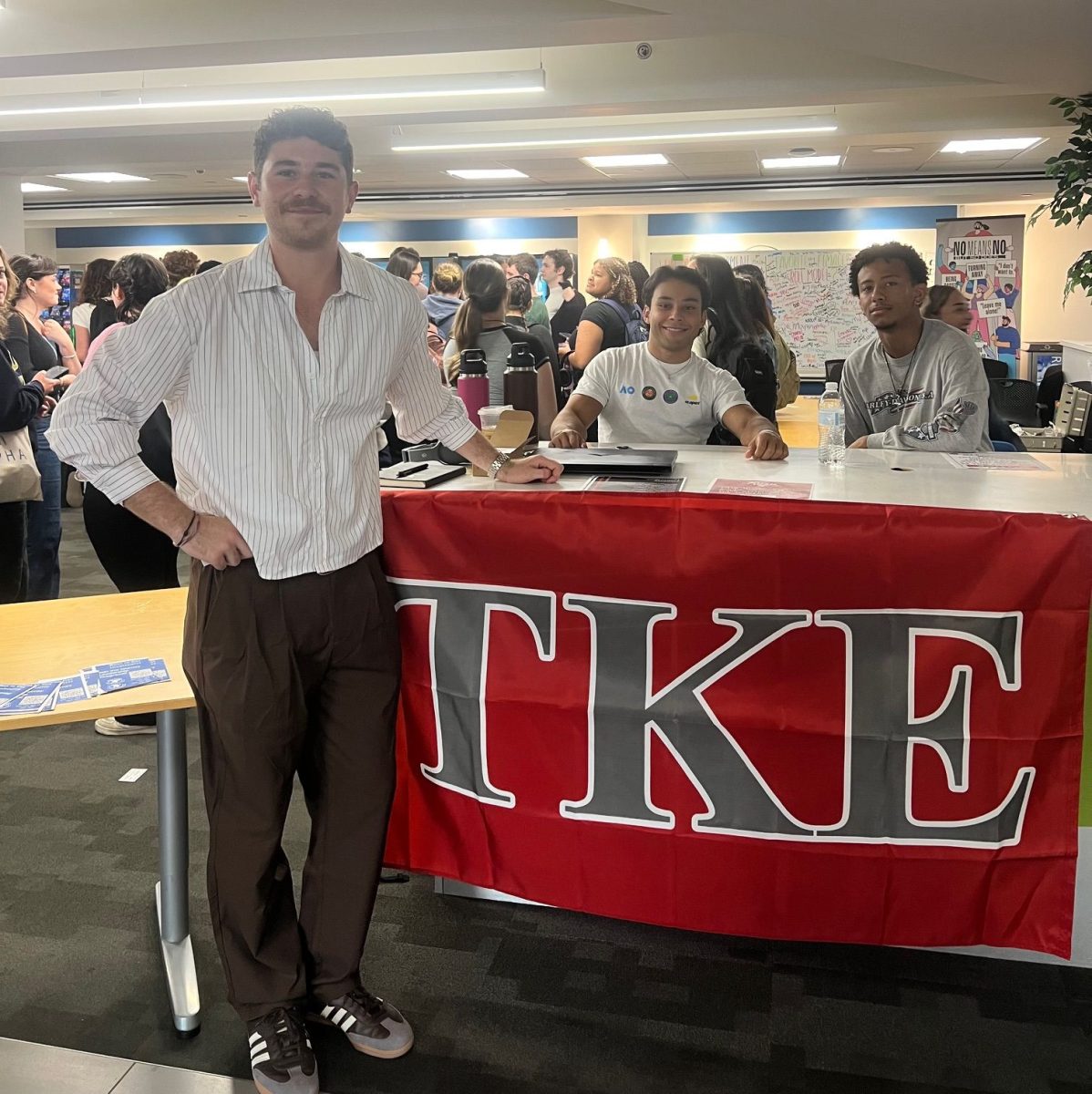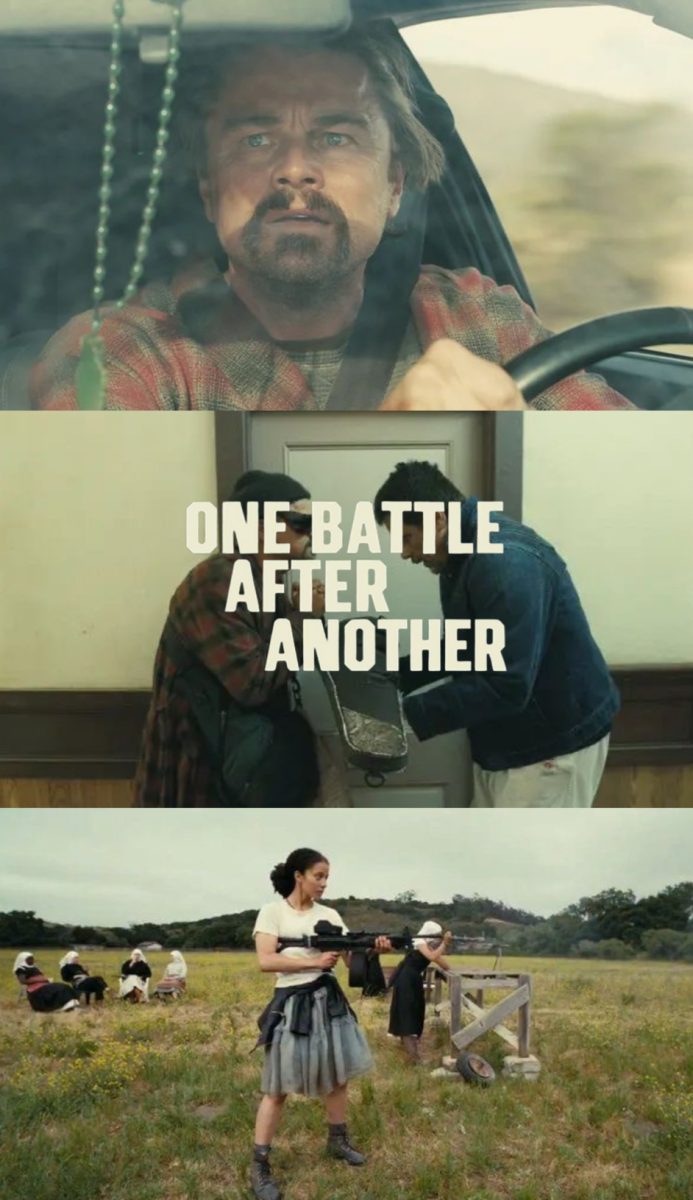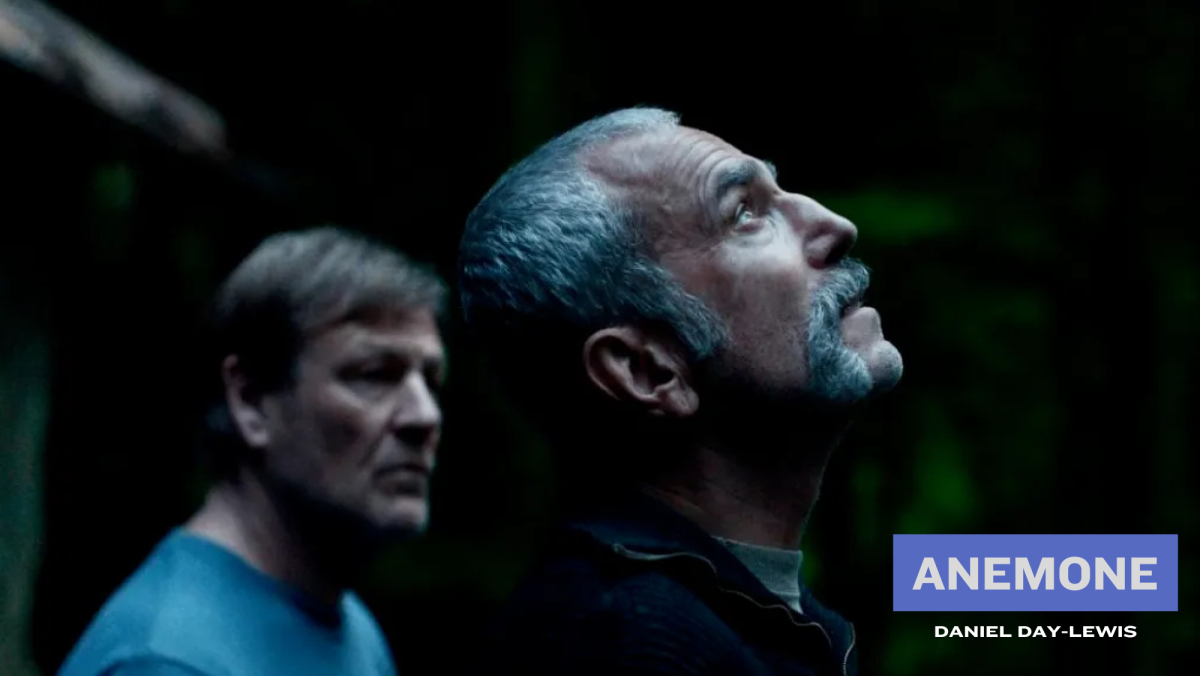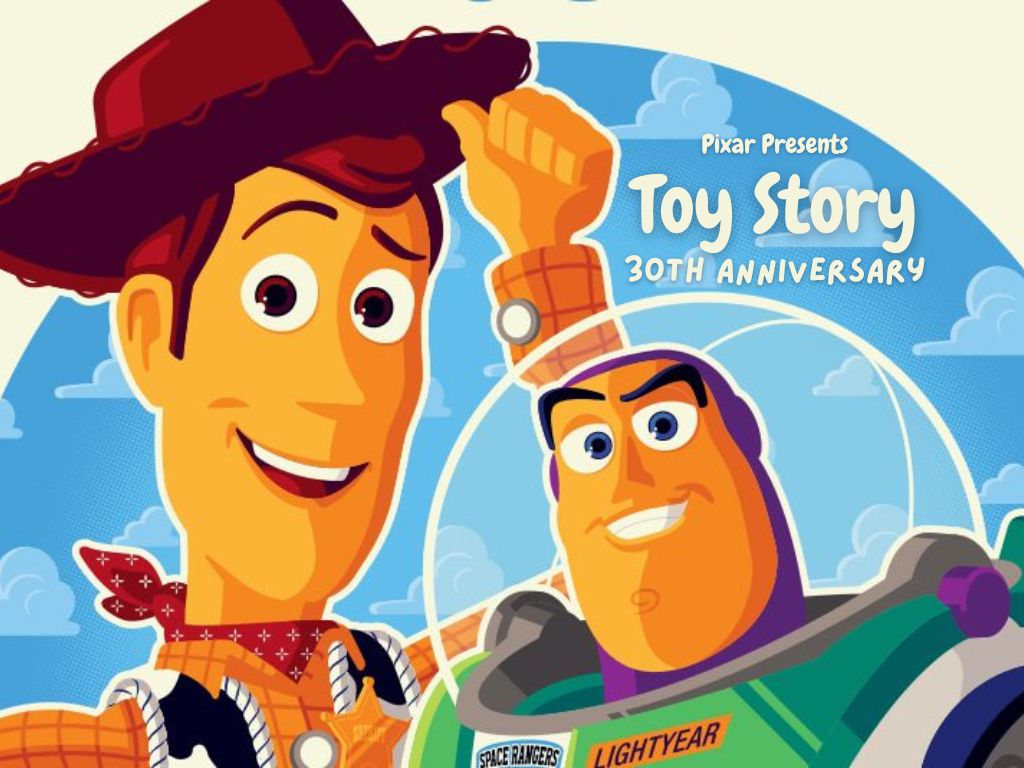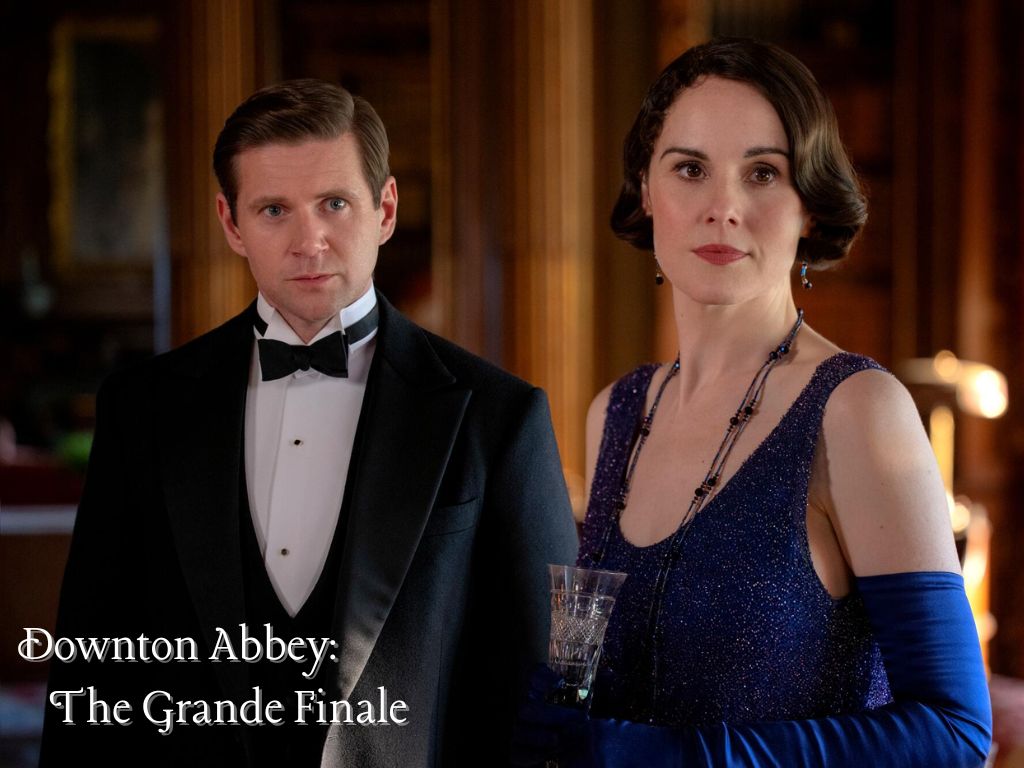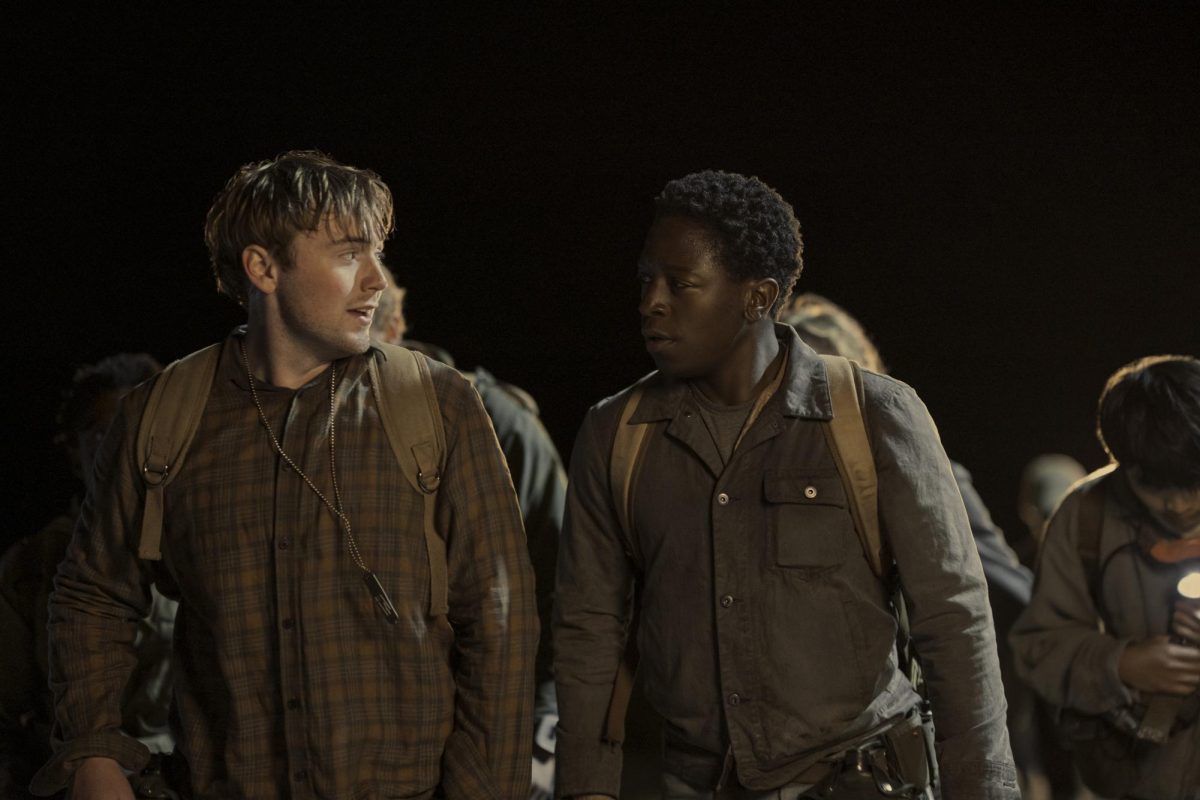The audience at The Modern Theater was filled with anticipation last Tuesday when Emmy-winning filmmaker Bob Rafelson visited to discuss his career with Suffolk’s own scholar in residence, National Medal of Arts recipient Robert Brustein.
The night began as they both spoke of their high admiration for one another and then moved on to why Rafelson decided to be a filmmaker. He first joked that he wanted to deceive us all, then went on to say it was easy for Americans to see talent in film, but that we had a problem in finding the talent in it for ourselves. After screening a key scene of Five Easy Pieces, in which Jack Nicholson’s character breaks down while trying to make peace with his deaf/mute father, Rafelson commented the scene was done in one take and was a challenge to shoot. An audience member asked Rafelson how he was able to convey such an emotional response from Nicholson.
“You take the gun and pull back the trigger half way and that usually does the trick,” he joked.
Rafelson went on to explain how Jack is one of his dearest friends and although they would argue, they always had a great working process. There were a few re-writes and the emotional monologue was delivered in one take. After the first take, Rafelson said he kept giving Nicholson a hard time about his performance and that he pestered him to the point where he walked off the set. He then praised Jack’s brilliance and said his original plan was to make around 10 films with Nicholson, which he actually worked close to six.
One notable element to the discussion is Rafelson’s hilarious sexual mindset. He said he had already chosen the names for films Head and Five Easy Pieces. He called his first film Head because he wanted his next film poster to say “from the guys that gave you Head,” regarding the “controversial” sex scene he directed between Nicholson and Jessica Lange in The Postman Always Rings Twice, he said in order to not receive an X-rating from the MPAA, he toned down the color in the film (but after showing them that, he reverted back to normal when the prints were sent to theaters).
Rafelson also talked about working with Arnold Schwarzenegger and how he believed he was a very smart man. When asked about his film style and his obvious love for foreign film as an influence, he said growing up it was easier to sneak into foreign films than American films.
When asked if he thought the lifestyle of “New Hollywood” filmmakers, combined with new directors like Spielberg and Lucas, is what stopped the “New Hollywood,” Rafelson jokingly he responded with a short yes. When asked if he would ever want to film again, he simply said no and that he set out to accomplish what he wanted to do. He said he doesn’t have much else to say, is happy with what he has done and is now happy to enjoy life with his family. (He originally entered the biz not just for art, but also for the lifestyle which eventually caught up to him.)


